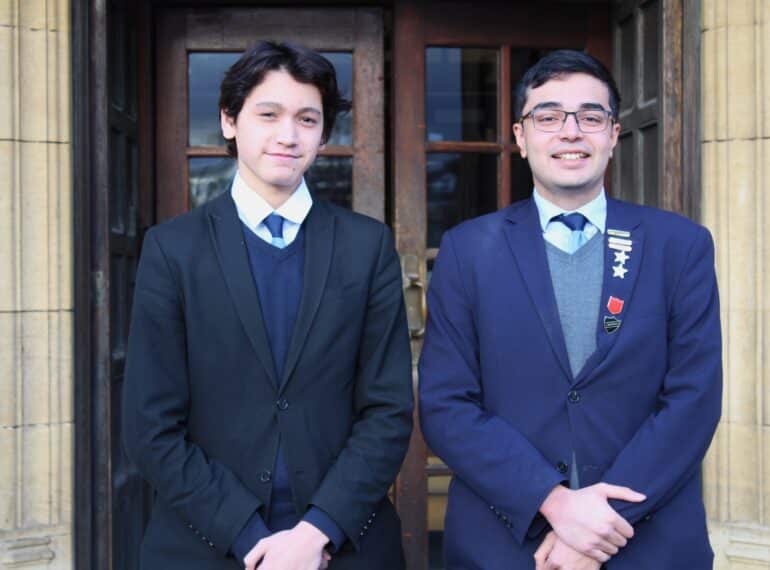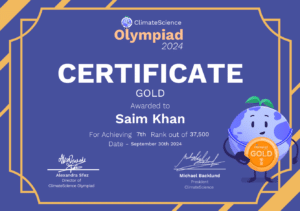QE pupils win gold in huge international competition on climate change

As delegates from around the world discuss critical environmental matters at COP29 in Azerbaijan, two QE sixth-formers have come seventh out of 37,000 entries in the Climate Science Olympiad.
 With the international olympiad open to people aged up to 25, Andreas Angelopolous and Saim Khan fought off competition from undergraduate & postgraduate students and potentially from young climate professional scientists to claim their place.
With the international olympiad open to people aged up to 25, Andreas Angelopolous and Saim Khan fought off competition from undergraduate & postgraduate students and potentially from young climate professional scientists to claim their place.
Scoring in the final was extremely tight, with the 87.0 points awarded for Andreas and Saim’s 3,000-word essay on the Kyrgyz Republic’s food system only 1.4 points behind the fourth-placed entry. (The scores of the top three entries are being revealed in Baku at COP29, the UN’s climate summit).
Deputy Head (Academic) Anne Macdonald said: “For two school-age students to have secured such success against significantly older entrants sets this apart as a truly outstanding achievement. It’s really an unbelievable feat, made believable only because we know how brilliant they both are!”
Both Saim and Andreas were part of the QE team that recorded a top ten finish in the international finals of the World Economics Cup, having previously come first in Europe in the Continental Round.
The qualifier round and quarter-finals for the Climate Science Olympiad comprised a 25-minute online quiz involving multiple-choice questions. The semi-finals involved writing a 1,000-word essay on three key themes, namely energy, development and natural systems.
In the finals, entrants were set the task of writing a longer essay on a complex global problem.
Once it was submitted, they had two online interviews: each involved giving a 15 min presentation and then answering questions from a panel of scientists, innovators and policymakers for five–ten minutes.
The second interview was for the top 20 entrants online. During this, entrants had to demonstrate they had responded to some of the feedback from the first panel.
In their essay, the pair wrote that they were presenting “a comprehensive approach towards creating a resilient and equitable food system in the Kyrgyz Republic”. Their systems-oriented solution included promoting capital investment; encouraging research and promoting collaboration among farmers; and a focus on water supply. The collaboration included farmers from the neighbouring country of Uzbekistan working with the Kyrgyz counterparts. The Uzbek government even provided feedback on Saim and Andreas’s proposal praising its “incredible detail for the monitoring and regulatory frameworks, which is of course vital for socio-economic change”. The Uzbek government also stated: “Promoting public, private and international financing are all crucial, and it is especially important to tie them into a single coherent system which gives confidence to all through regulation, which this entry clearly recognises.”
Andreas and Saim were awarded gold certificates and prize money of $1,000.
